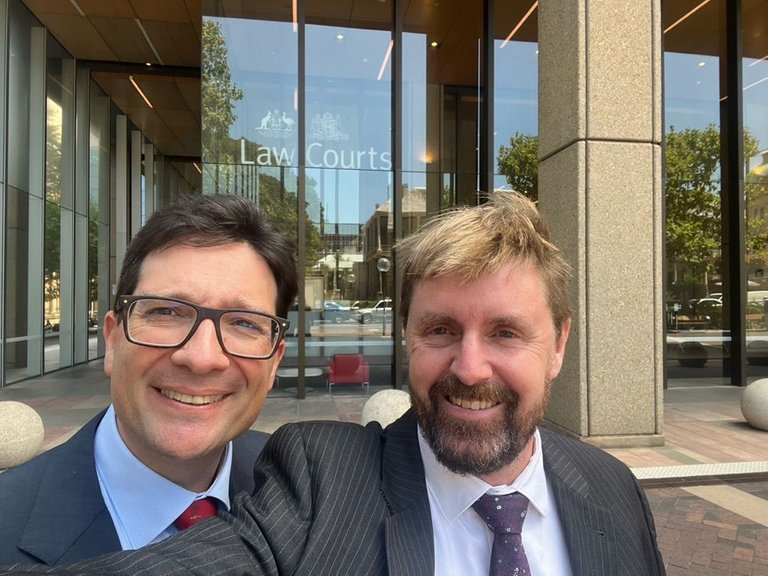@brianoflondon has given a great general summary of the first two days of contested hearing in the #Cryptoclassaction against Meta and Google.

I wanted to set out the opening oratory speech with which I commenced my oral submissions to the Federal Court of Australia.
While good oratory is both expected and appreciated in the US Courts system and a part of the historic legacy of the British legal system, advocates before Australian Courts rarely engage in it and can often be plodding and dull. I think this needs changing.
The background to this introduction is that my name is Andrew Paul Stuart Hamilton (and that forms part of the name of the case) but the solicitor on the record for Meta had somehow written my name as "Paul Alexander Stuart Hamilton" on the front page of the main affidavit. This is an error that should not have got through the review process of a top law firm.
Oratory Introduction
"The First Respondent has some difficulty with my name.
While I am honoured to be confused with a founding father of the United States of America, Alexander Hamilton, I do have a historic namesake from that same era who shares both my actual name, Andrew Hamilton, and my profession.
This is what he had to say on 4 August 1735 in the case that established free speech in America - The John Peter Zenger Trial.
“Power may justly be compared to a great river. While kept within its due bounds it is both beautiful and useful. But when it overflows its banks, it is then too impetuous to be stemmed; it bears down all before it, and brings destruction and desolation wherever it comes. If, then, this is the nature of power, let us at least do our duty, and like wise men who value freedom use our utmost care to support liberty, the only bulwark against lawless power, which in all ages has sacrificed to its wild lust and boundless ambition the blood of the best men that ever lived….”
Source: https://www.famous-trials.com/zenger/87-home
In relation to the Respondents, who are the most powerful companies in the world, the law and competition law in particular, forms the banks which constrain their power.
This case is about enforcing Australia’s competition law and returning the Respondent’s river of power to the banks from which its has overflown, causing great destruction and loss of liberty.
It is into this context that we must consider the Respondents’ interlocutory applications.
Four points must be made at the outset before delving into the detail:
The fundamental perversity of suggesting that to protect the interests of group members they should be deprived of their only viable means of securing damages for the harms done to them by the Respondent’s ad bans.
The Orwellian “Precognition” like nature of the argument that because a person might breach some alleged obligation to group members they should be prevented from representing them at all.
How can the interests of justice ever be served by preventing the enforcement of important public law (Part IV of the CCA) in a case that affects millions of Australians and involves the most powerful companies in the world.
The Respondents’ complete failure to cite any authority demonstrating that the remedies sought (stay & declassing) are available to address the harms alleged (conflicts of interest and contingency fees."
The John Peter Zenger Trial is, of course, the basis for free speech in the United States and the source of the First Amendment to the US Constitution.
While the Crypto Class Action is not directly about freedom of speech, competition law and freedom of speech are two sides of the same coin.
The First Amendment protects against government curtailment of speech while competition law ensures there are free markets, including the market for ideas and competition for modes of mass communications.
I posted about this on Hive a number of years ago.
Please vote for my Hive witness. (KeyChain or HiveSigner)




